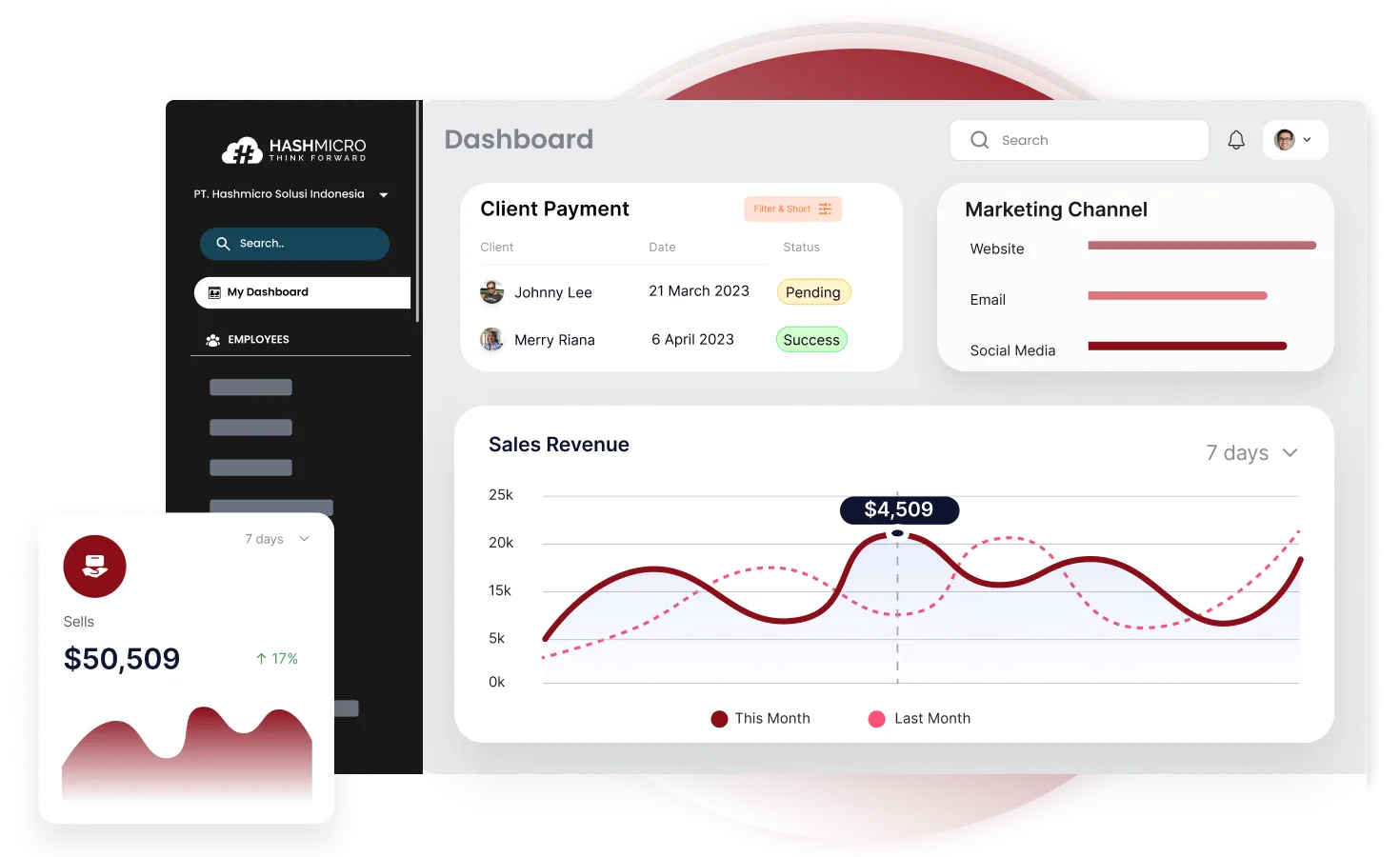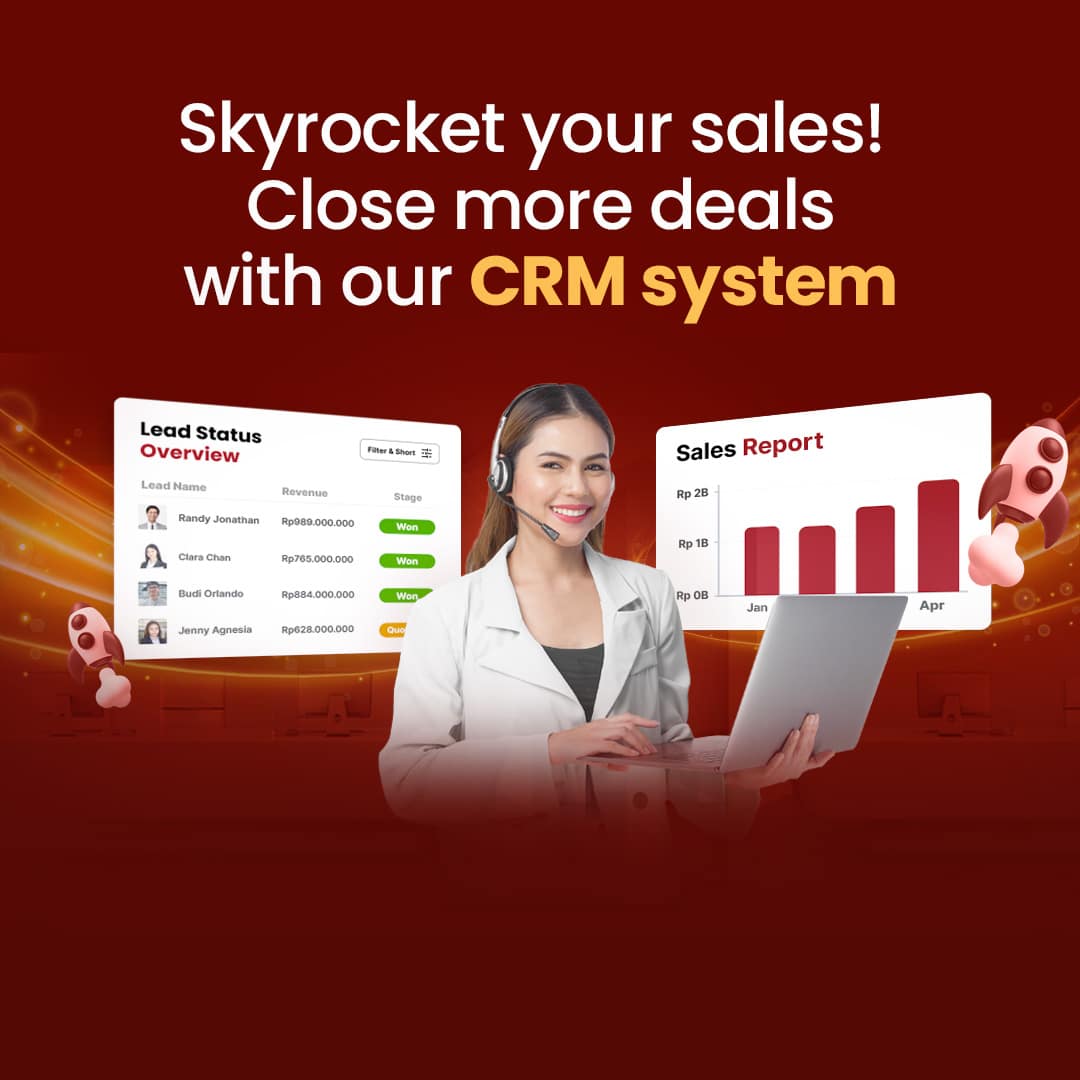A single click can lead to a sale, and 74% of companies believe that user experience is imperative for improving sales and conversions. This statistic emphasizes the need for efficient methods, specifically through ERP multi-channel sales management systems.
An Enterprise Resource Planning (ERP) system enhances your overall sales strategy optimization. It simplifies complex stock control, inventory visibility, and order synchronization processes.
Adopting an effective ERP solution is necessary for Singaporean businesses, aiding them to keep up with the robust demands of multi-channel sales management. Without an ERP system, a business might more easily experience human error or mistakes in managing sales, impacting conversion rates.
Key Takeaways
|
Table of Content:
Table of Content
Challenges in Implementing Sales Strategies
As you expand your business through multi-channel sales strategies in Singapore, you’ll likely encounter various challenges that can impede your progress. Understanding these challenges is the first step toward crafting effective solutions that enhance your Singapore sales operations.
Inconsistent customer experience
One of the principal sales strategy challenges is ensuring multi-channel experience consistency. Consumers expect a seamless shopping experience, whether online or in-store. Failure to provide this can lead to dissatisfaction and decreased loyalty.
Data fragmentation
With multiple sales channels, data fragmentation can become a real issue. This fragmentation often results in incomplete insights into customer behavior and sales performance, complicating strategic decisions.
Resource duplication
Duplicating resources across channels can inflate costs and lead to inefficiencies in operations. Effective resource management is crucial to optimize both human and technical assets.
Lack of collaboration
Inter-departmental collaboration is necessary for a smooth multi-channel operation. Without it, siloes can develop, leading to disjointed efforts and a scattered approach to customer engagement and inventory management.
Inefficient inventory management
Inventory management difficulties often arise with multi-channel retailing. Coordinating stock levels to prevent overstocking or stockouts requires sophisticated, real-time inventory systems, which are crucial in meeting customer expectations and maintaining operational efficiency.
Benefits of ERP Software for Sales Channels
Embracing ERP software brings transformative advantages to your sales channels. By addressing core needs such as sales channel optimization, centralized customer data, efficient order processing, and inventory synchronization, best ERP systems significantly enhance how businesses in Singapore manage their sales operations.
Centralized data
One of the primary ERP benefits is the centralization of customer data. This integration is crucial as it ensures all information is compact and errors are substantially reduced. With centralized customer data, you have a single, reliable source for all customer interactions, facilitating better service and personalized customer relationships.
Customer relationship management
The integration of ERP with CRM systems provides a holistic view of your customer engagements. This insight into customer behaviors and purchasing patterns means you can tailor your approaches to meet their specific needs and preferences, boosting satisfaction and loyalty.
Inventory management
Effective inventory management is made possible with ERP systems through inventory synchronization. Real-time visibility into your stock levels across all channels helps prevent overstocking or stockouts, ensuring your inventory is managed efficiently without compromising your sales capacity.
Order processing
Efficient order processing is another highlight of ERP systems. By automating order entry, invoicing, and fulfillment, ERPs reduce the likelihood of human error and expedite the entire order process. This results in faster turnaround times for your customers, enhancing their overall experience and satisfaction.
Multi-channel management
For businesses operating on multiple sales platforms, ERP’s multi-channel sales capabilities ensure seamless integration and consistent management across all channels. This synchronization not only improves operational efficiency but also enhances the customer experience by providing consistent service and product availability.
Streamlined returns and exchanges
Handling returns and exchanges is often a complex process, but with ERP, these activities are streamlined through automated procedures. This capability not only saves time but also reduces the costs associated with handling returns, improving both efficiency and customer satisfaction.
Real-time report and analytics
Finally, the advanced analytics and real-time reporting features of ERP systems empower businesses with actionable insights. These capabilities facilitate informed decision-making and strategic planning, essential for adapting to the dynamic business environment and market conditions in Singapore.
Impacts of ERP on Multi-Channel Sales
The transformative role of ERP systems in multi-channel sales cannot be overstated. For retailers in Singapore, the adoption of an ERP system signals a substantial leap towards streamlined e-commerce operations and an overall improvement in sales strategy. This advancement drives not only efficiency but also effectiveness across various selling platforms.
An ERP system’s impact begins with its core capability to synchronize inventory data in real time across both physical and online stores. This synchronization ensures that stock levels are accurate, up-to-date, and consistently managed, preventing the common retail blunders of overstocking or stockouts that can severely affect customer satisfaction.
- Multi-channel sales enhancement is significantly visible as these systems enable businesses to maintain harmonious sales narratives across different channels. This unified approach not only enhances brand consistency but also boosts customer engagement and loyalty.
- The ERP system impact extends to administrative tasks by reducing overhead and simplifying complex processes that typically consume valuable resources.
- Streamlining backend operations such as order processing, inventory management, and customer data management translates to faster response times and more personalized customer interaction, fostering a competitive edge for businesses.
Moreover, ERP platforms are instrumental in enhancing the strategic facets of business. They provide robust analytics tools that offer insights into market trends, customer preferences, and performance metrics, enabling businesses to tailor their sales strategies for maximal impact. Through these insights, companies can make informed decisions that propel market responsiveness and agility.
Ultimately, deploying an ERP system in multi-channel sales scenarios encapsulates more than just technological integration; it embodies a strategic foresight to refine, optimize, and elevate the retail experience in Singapore’s market.
Boost Sales with HashMicro CRM Software
Looking to enhance your multi-channel sales operations in Singapore? HashMicro Customer Relationship Management (CRM) software is your go-to solution, designed to boost sales effectiveness and automate essential business functions.
To increase sales and streamline operations, HashMicro provides a robust setup that helps you manage intricate sales and customer activities effortlessly.
Implementing HashMicro CRM software enables sales automation that not only simplifies management but also empowers your team to focus on strategic growth areas.
HashMicro’s capability in ERP software with multi-channel sales management ensures that each channel functions optimally without the hassle of manual coordination, making it easier to maintain consistency and accuracy across all platforms.
Below are the key features of HashMicro CRM Software:
- Sales Forecast & Actualization: This feature allows businesses to predict future sales using historical data, trends, and analysis. It helps in setting realistic sales targets and tracking actual sales performance against these forecasts, enabling timely adjustments in strategies.
- Customer Segment (RFM) Analysis: RFM stands for Recency, Frequency, and Monetary value. This analysis helps in segmenting customers based on how recently they purchased, how often they purchase, and how much they spent. It is useful for identifying high-value customers and tailoring marketing efforts to different customer segments.
- Sales Mobile Apps – Android & iOS: HashMicro CRM provides a mobile application available for both Android and iOS platforms, enabling sales teams to access and update customer data on-the-go. This feature enhances mobility and flexibility, allowing sales personnel to stay connected and responsive no matter where they are.
- Sales Loyalty Management: This feature focuses on developing and maintaining customer loyalty through rewards and personalized engagement strategies. It allows businesses to track customer behavior, identify loyalty trends, and implement targeted promotions or rewards programs to encourage repeat business and strengthen customer relationships.
- In-Depth Credit Limit Management with Credit Ratings: This feature enables businesses to manage and set credit limits for their customers based on detailed credit ratings. It helps in assessing the creditworthiness of customers, reducing financial risk, and ensuring transactions are within the agreed credit terms.
- Blanket Orders Management: Blanket order management allows businesses to handle long-term purchase orders with their customers. This feature simplifies the process of managing ongoing deliveries and orders over a specified period, helping to streamline operations and maintain consistent supply without repeated negotiations.
- Customer Portal: The customer portal is an online platform where customers can view their transaction histories, manage their account details, and place orders directly. This feature enhances customer interaction and service by providing a convenient, transparent, and user-friendly interface for business communications and transactions.
Conclusion
In conclusion, the integration of ERP and CRM software into multi-channel sales management is very important for Singaporean businesses.
For businesses aiming to not only sustain but also grow their market presence through enhanced operational efficiency and customer satisfaction, HashMicro CRM software emerges as a compelling choice. With its robust features tailored to boost sales performance and customer engagement, HashMicro helps businesses harness the full potential of their multi-channel strategies.
To discover how HashMicro can elevate your sales strategy, consider exploring our free demo today.





































